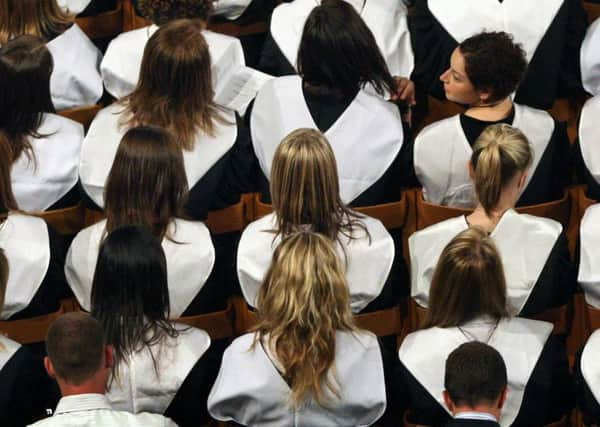Study shows privately educated pupils likely to be healthier later in life


The link between an elite education and health at the age of 42 remained even when other factors such as family background, childhood health and whether a youngster obtained a university degree, were taken into account, researchers said.
The study, by the Centre for Longitudinal Studies at the UCL Institute of Education, analysed information on 8,400 men and women born in England, Wales and Scotland born in a single week in 1970 taking part of the 1970 British Cohort Study.
Advertisement
Hide AdAdvertisement
Hide AdResearchers looked at the health of individuals at the age of 42 and compared this with the secondary school and university they attended.
Those who attended a state comprehensive had a body mass index (BMI) around 1.8 points higher than their peers who went to a fee-paying school - which could be enough to move an individual from being considered a normal weight to overweight, or from overweight to obese.
The former private school students also showed some healthier behaviours such as watching less TV and eating fewer takeaways.
Researchers say their findings add to studies demonstrating inequalities in health outcomes according to educational attainment, and to those which examine how aspects of schooling or university education are related to a more limited number of health outcomes.
Advertisement
Hide AdAdvertisement
Hide AdLead author Dr David Bann, said: “There are a number of possible explanations for our findings. For example, private schools often have more resources to put into extracurricular activities than the state sector. This may help pupils develop healthy habits that benefit them later in life. Private education is also linked to higher adult earnings, which could be used to cover the costs of a healthy diet and exercise.
“Our findings should be interpreted carefully as they do not prove that the school environment itself caused differences in adult health. However, given continued concerns about school funding and the selling-off of state school playing fields, our research suggests there might be long-term health benefits of improving recreational as well as academic opportunities for pupils.”
Labour MP for Batley and Spen, Jo Cox, who last month opened a parliamentary debate to close the geographical divide in education results which sees Yorkshire and the Humber lag behind the rest of England, said although the findings were “shocking”, she was not surprised.
She said: “It is now clear that unless we address these inequalities we’re are not only damaging children’s academic potential but also their long term health.
Advertisement
Hide AdAdvertisement
Hide Ad“We must ensure that every child in Yorkshire has access to the best academic and recreational opportunities so they can reach their potential.”
The acting director of the Equality Trust, which works to improve the quality of life reducing economic inequality, John Hood, said: “What this report actually shows is that the key determinant of someone’s health is not whether they are privately educated or not, but how well-off their family is, and their health and cognitive ability in childhood.
“We know there is a steep social gradient in health, with those on middle incomes having better health than the poor, and the rich having better health than those in the middle. The privately educated tend to have wealthy parents, and earn higher incomes in later life, so it’s little surprise they also enjoy better health.”
A spokesperson for the Department of Education said: “As the report suggests, the findings do not prove that the school environment itself causes differences in adult health. Through our reforms, more and more children attending state schools are getting better opportunities to engage in an active lifestyle, but this isn’t just about training the next generation of sporting stars, it’s about making sure children, whatever their ability, develop a real and long-lasting love of sport and the habit of physical activity.
“This Government is deeply committed to protecting and safeguarding school playing fields. No-one can dispose of school playing field land without the Secretary of State’s consent.”